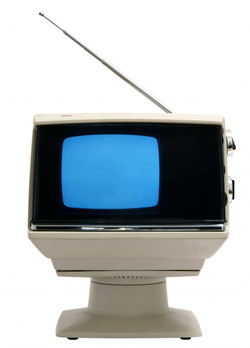After I posted you must unlearn what you have learned yesterday, I entered into a mind opening conversation with Brian Clark that started on my blog and then went over to email. Brian helped me to realize something that I had been missing.
The new rules really aren't new.
Brian (and others who also commented and sent me emails) helped me to understand that from 2,000 years ago, nothing fundamentally has changed. Many generations ago, people communicated with each other and sold stuff (chickens perhaps) at the town square. Even 100 years ago communications was real and personal and authentic. You asked the pharmacist in your town to make you up a potion to cure your ills and you bought your linen at the local dry goods store. Personal opinions mattered.
Instead of making everything "new," the Web has brought communications back full circle to where we were 60 years ago. On the Web you can finally communicate again in the way that people respond to. What people respond to, and the way they make purchase decisions, really hasn’t changed at all.
The Web is a huge town square and blogs are like people who venture into the town pub. People communicate and share ideas and products are sold.
OK, so what's different then?

After World War Two we had a huge aberration in the form of mass media. As people in the United States focused on just three television networks as the primary way they made decisions about soap and cars and fashion, the world of marketing and PR morphed from being personal and authentic to being generic and message driven. Instead of personal communications, mass media was the "new" and communicators (like me I would admit) went a little silly trying to adapt.
So then what happened?
The whole Madison-Avenue-driven (and PR-reinforced) focus on mass media made perfectly sane people stop communicating and instead become kooky with interruption-based advertising to the masses. Even niche B2B technology marketers adopted the mass media concept and dumbed down their offerings into flexible scalable solutions for improving business process and then advertised the "solutions" in generic business magazines, hired expensive PR agencies, and sent massive direct mail campaigns to convince people that they had a problem that technology can solve.
Watching the new TV show Mad Men reminded me how we've really only been doing mass marketing since the 1960s or so. We built up a big TV-centric economy in just a few short decades and now, thanks to the Web allowing us to communicate again, we're breaking down the TV-centric economy even faster than we built it.
Yes, we still need to unlearn what we've learned in the last half century.
But rather than everything being "new," it's more like we're just going back to the way it was before mass culture made us kooky and silly.
Thanks again Brian for pointing me here. You were right all along.
As long as I'm writing about the post I did yesterday I would also like to add that while I do think that Web marketing is making communications "new" again, there is still room for the tried and true. As Kevin Grossman says, "Traditional marketing and PR is still viable and should be included in your business plan (to what degree depends on your business, target market, etc.)" I agree with Kevin that a mention in the Wall Street Journal is extremely valuable. And I also agree with Matt Gentile that PR remains a people business. "Meeting the reporter (in person) find out what they are writing about and tailor your pitch. Have some fun with the new media, but don't forget the basic principles of PR."